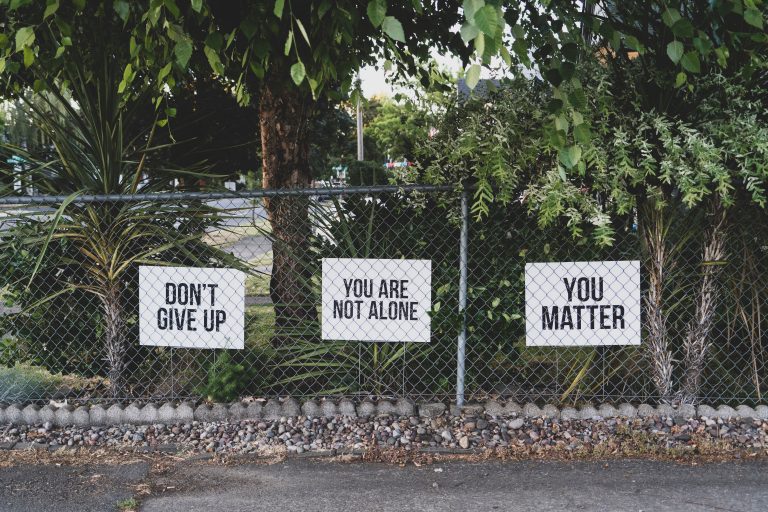According to the National Institute of Mental Health (NIMH), nearly one in five adults — or 46.6 million — lived with a mental illness in the United States in 2017. However, only 19.8 million (less than 45 percent) actually received mental health services that year. This large gap proves that there is a lack of awareness regarding our emotional well being.
Our busy nature could be to blame. We run around every day, marking checks off of lists. Our eyes droop and our backs ache. We stifle yawns, but don’t slow down because there’s another meeting to attend and another deadline to meet. Even right now, you aren’t paying attention to what I’m saying because you have a million other assignments, a million other ideas running through your brain. But our chaotic nature has brought a lot of unknown harm. We need to stop — we need to take a second to breathe.
I realize stopping to breathe doesn’t solve everything; it is only a piece of the puzzle. When we stop, we are able to think. When we think, suddenly our stoic façade cracks and we begin to feel. Buried overwhelming thoughts and gut-wrenching emotions are brought to the surface, and as painful as that can be, that is where the healing process begins.
When God created man, his original vision wasn’t for us to work until exhaustion as emotionless machines. We were not made to keep everything inside. He created us to live with Him, all of our feelings included. The fall of humanity created separation from God, yes, but He still offers an invitation to sit with him and talk through whatever storm is roaring inside us.
Yet, to reach that point, as a society we have to overcome the stigma surrounding mental health. Too many of us are suffering to brush the concern under the rug.
According to the World Health Organization, about 800,000 people commit suicide every year — a life lost every forty seconds. In the last decade, according to the CDC, suicide rates among young people ages 10-17 have increased by more than 70 percent. Research from Our World in Data (an organization combining the Oxford Martin School and the University of Oxford) shows 284 million people worldwide living with anxiety, with 322 million living with depression.
The issue, though, is much more personal than statistics. These numbers represent real people with real issues that need to be discussed. Individual stories still matter – your story matters.
Talking spreads awareness, but there is also a need for personal and societal action. Melissa Benoist and Chris Wood, actors from the hit CW show Supergirl, founded IDONTMIND in 2017 to bring hope to those who are struggling and afraid to speak up. Nonprofit organizations such as To Write Love on Her Arms and The Trevor Project provide resources and invest directly into mental health treatment and recovery. British Youtuber Daniel Howell announced his new book, “You Will Get Through This Night,” which has three chapters for each stage of the journey “to understand your mind so you can be in control and really live.”
Also, there are over 10,000 apps that have been created for mental health purposes, such as Talkspace and stoic. They allow you to talk to registered therapists, create daily journals and offer breathing exercises to help lessen stress. Guided meditation apps help with sleep, so our bodies can repair themselves and our brains can process the day in a relaxed state.
Right here on campus, faculty and staff encourage students to book counseling appointments with the Center for Wholeness and Wellness. There are events such as Our Hearts’ Cry and small wellness groups to provide safe places for us to process our lives and what’s happening in the world.
September is Suicide Prevention Month, and Mental Health Awareness Month will occur next May, meaning now is the time to start taking care of ourselves. Become conscious of your own state, as well as your friends’ by implementing simple ways to keep yourself mentally healthy. This could include the practice of solitude, journaling or becoming aware of harmful self-talk — even prioritizing sleep to the recommended 8 hours a night will make a difference.
Don’t be afraid to be vulnerable; have the tough conversations. Rest. Take care of yourself and the people around you.




